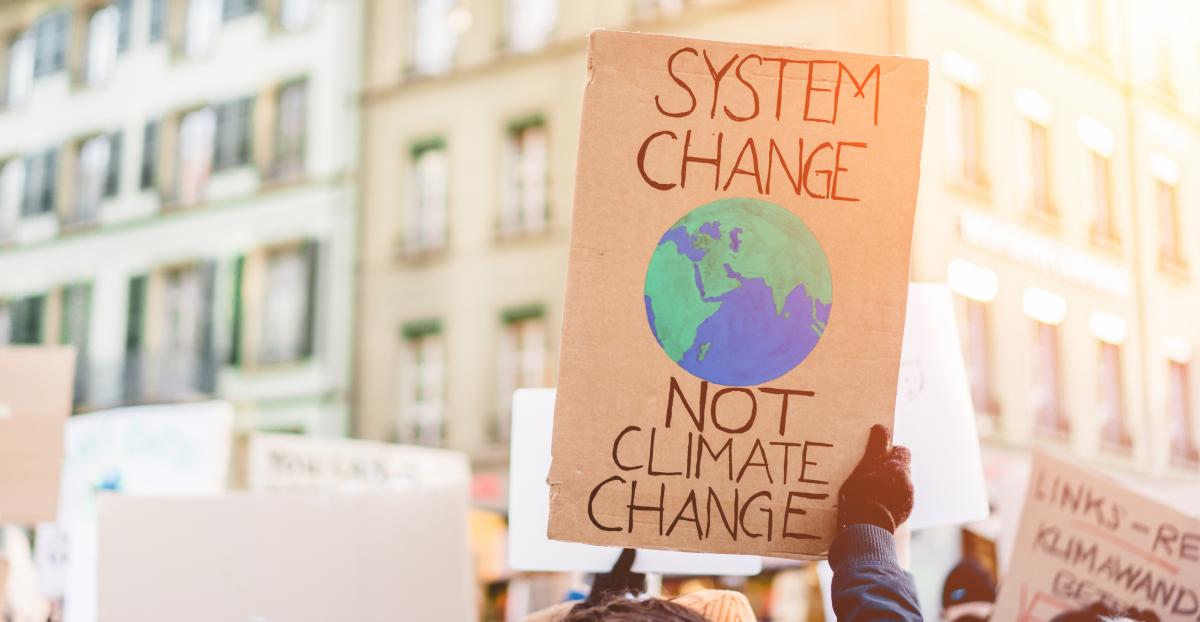Leaders must make climate policy an opportunity to improve people’s lives, say consumer groups as COP26 talks unfold
About this publication
PRESS RELEASE - 03.11.2021
A carbon-cutting climate policy can bring environmental, economic, and social value to the daily lives of consumers. In a new paper, the European Consumer Organisation (BEUC) provides a path forward for EU governments to translate global commitments on CO2 emissions into policies that make the sustainable choice the easy and affordable choice.
 One factor across all climate policies is that people concretely need to change their lifestyles. We all need to adapt our food habits, the way we travel, how we heat or cool our homes, what we invest our savings in, and whether we buy a particular product or not.
One factor across all climate policies is that people concretely need to change their lifestyles. We all need to adapt our food habits, the way we travel, how we heat or cool our homes, what we invest our savings in, and whether we buy a particular product or not.
That is why consumer organisations urge decision-makers to move from the concept of a ‘just and fair transition’ to concrete changes that will support consumers across income groups to adapt their ways of living.
Presenting climate policies as an opportunity for a better daily life is critical to get Europeans on board at a time where the EU moves from strategies to the concrete legislation of its Green Deal. The bloc’s efforts should focus on regulating energy, mobility, food, consumer products, and finance in ways that allow consumers to reduce environmental impacts while cutting costs [1].
Monique Goyens, Director General at BEUC, reflects on the UN climate conference:
“Our everyday decisions as consumers, from what we eat to the way we heat our homes, are crucial as we tackle the climate crisis. The EU and governments across Europe can ensure the success of their own environmental policies by making the sustainable choice affordable, attractive and the most convenient one for people. For climate action to hit its mark, we must replace doom and gloom thinking with the idea that change brings opportunity.
“Helping Europeans make sustainable changes can improve the environment and at the same time benefit our well-being and wallets. Existing policies for energy-efficient fridges and televisions show the way, as they already save people several hundreds of euros per year. As we stand at the dawn of what could well be a complete transformation of our lifestyles, there is a lot for people to gain if countries turn lofty international commitments into decisive action for a better daily life.”
[1] How climate policy can benefit consumers’ daily lives and well-being
In the paper ‘Climate action as an opportunity for all’, BEUC looks at the cost of inaction on climate change and compares the main areas of household expenditure – housing, mobility, food – to their CO2 footprint.
We provide recommendations to the EU on how consumers could benefit from well-designed climate policy measures. Below the main areas, with example recommendations:
- Reducing housing emissions while cutting people’s energy bills: Insulating people’s houses and apartments can drastically reduce their energy bills. To overcome the hurdle of high upfront investments, new instruments – such as innovative financial schemes combining public subsidies with green loans – should be promoted. People should also be supported during their renovation projects by so-called ‘one-stop-shops’, which provide concrete help in finding accredited installers, navigating administrative processes, or getting the right financial support.
- Cleaner and diversified mobility systems that cut costs: Regulating to bring affordable electric cars on the road, improving passenger rights, and investing in rail, public transport networks, walking and cycling infrastructure can lower people’s expenditure on fuel and improve their health.
- Sustainable, healthy diets as the easy option for consumers: To support the shift to healthy, plant-rich diets, the EU must stop funding promotional campaigns for meat, dairy, and alcoholic beverages. This would free up resources that could be used to promote the consumption of fruit and vegetables, wholegrains, pulses, and other foods.
- Buying efficient and repairable products that last longer: Research by German consumer group vzbv shows households could save up to €3,67 billion per year if four widely used consumer products (TVs, notebooks, washing machines and smartphones) lasted longer. The EU could spur this by systematically introducing minimum criteria for repairability and durability in EU ‘Ecodesign’ law.
- Greener finance for long-term investments underpinning climate action and social cohesion: Banks should be required to offer a range of standardised green loans at favourable conditions in their product catalogues.
See also
- Recommendations by BEUC on the European Green Deal
- Recommendations to the UK government by consumer group Which?
ENDS

